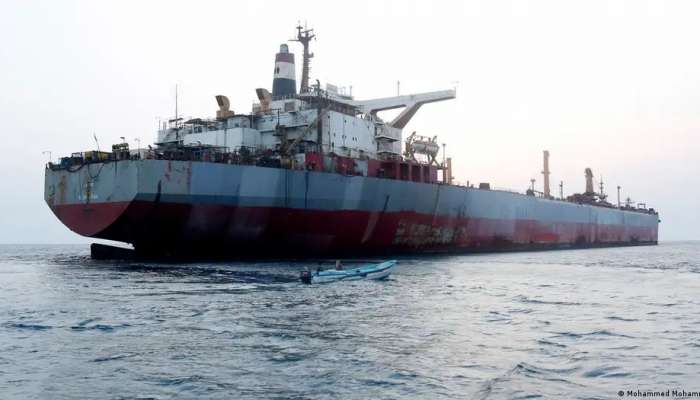
Hodeida: The United Nations said on Tuesday it had begun pumping oil from a decaying supertanker off Yemen's Red Sea coast in a bid to prevent an environmental disaster that it estimates would cost $20 billion (€18 billion) to clean up.
The 47-year-old tanker, called the FSO Safer, is a floating storage and offloading facility that has been moored around 50 kilometres (30 miles) from the port of Hodeida since the 1980s. The corroding vessel has not been serviced since war broke out in Yemen eight years ago.
It is is carrying four times as much oil as was spilled in the 1989 Exxon Valdez disaster off Alaska, according to UN officials.
What we know about the UN operation
"The United Nations has begun an operation to defuse what might be the world's largest ticking time bomb," UN Secretary-General Antonio Guterres said in a statement.
"A complex maritime salvage effort is now underway in the Red Sea off the coast of war-torn Yemen to transfer 1 million barrels of oil from the decaying FSO Safer to a replacement vessel," the statement said.
The transfer of the Marib light crude to a new vessel is expected to take around three weeks.
If the oil were to spill, it would cause disruptions to shipping through the Bab al-Mandab Strait to the Suez Canal and devastate coastal fishing communities, ecosystems and important ports.
A crew of seven to eight members has remained on the ship over years and worked to prevent possible oil leaks and explosions.
The waters where the Safer is positioned are controlled by Houthi rebels, who are involved in a conflict with a Saudi-led coalition that backs the internationally recognized Yemeni government based in the southern city of Aden.